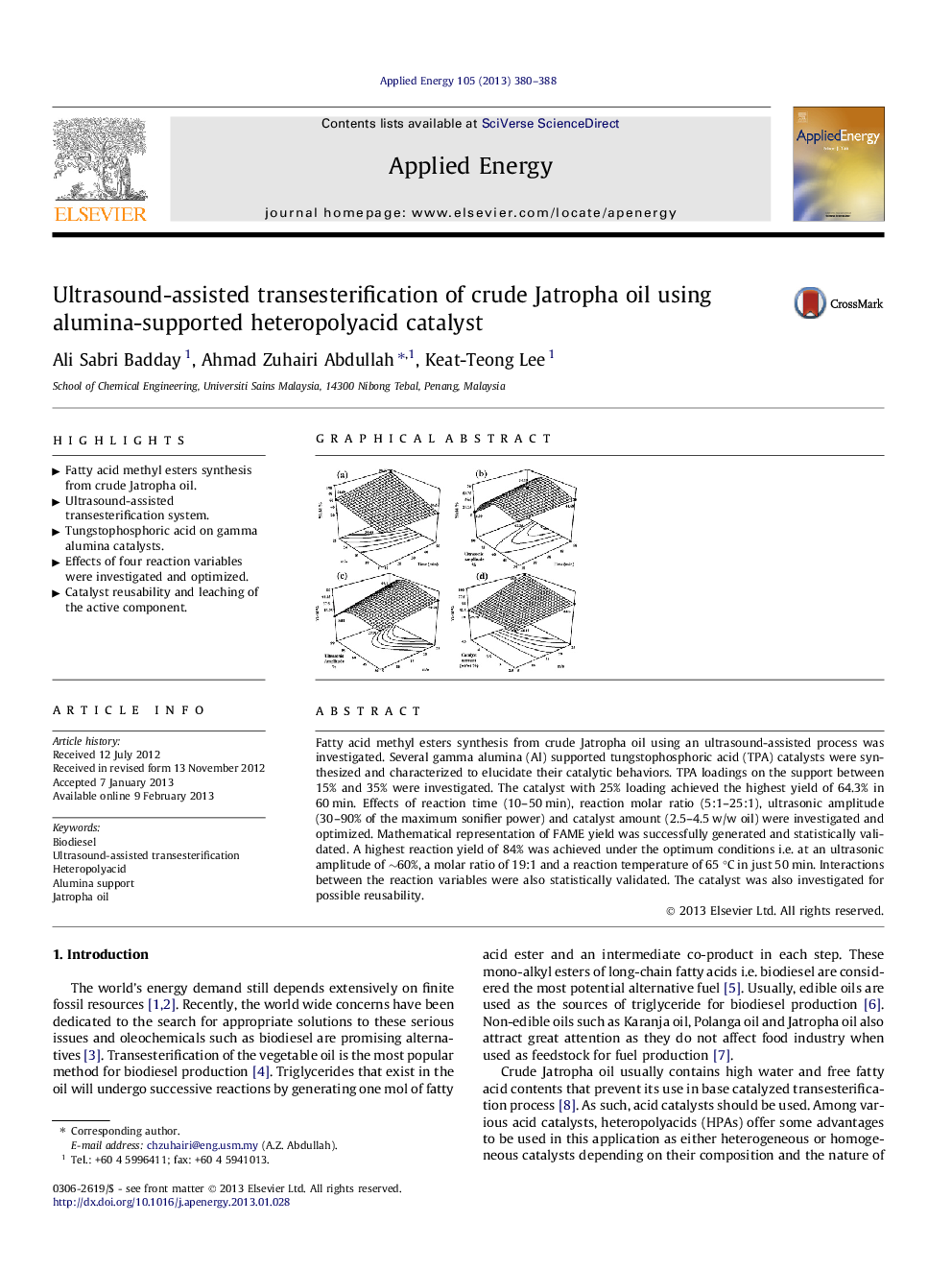| Article ID | Journal | Published Year | Pages | File Type |
|---|---|---|---|---|
| 243466 | Applied Energy | 2013 | 9 Pages |
Fatty acid methyl esters synthesis from crude Jatropha oil using an ultrasound-assisted process was investigated. Several gamma alumina (Al) supported tungstophosphoric acid (TPA) catalysts were synthesized and characterized to elucidate their catalytic behaviors. TPA loadings on the support between 15% and 35% were investigated. The catalyst with 25% loading achieved the highest yield of 64.3% in 60 min. Effects of reaction time (10–50 min), reaction molar ratio (5:1–25:1), ultrasonic amplitude (30–90% of the maximum sonifier power) and catalyst amount (2.5–4.5 w/w oil) were investigated and optimized. Mathematical representation of FAME yield was successfully generated and statistically validated. A highest reaction yield of 84% was achieved under the optimum conditions i.e. at an ultrasonic amplitude of ∼60%, a molar ratio of 19:1 and a reaction temperature of 65 °C in just 50 min. Interactions between the reaction variables were also statistically validated. The catalyst was also investigated for possible reusability.
Graphical abstractFigure optionsDownload full-size imageDownload as PowerPoint slideHighlights► Fatty acid methyl esters synthesis from crude Jatropha oil. ► Ultrasound-assisted transesterification system. ► Tungstophosphoric acid on gamma alumina catalysts. ► Effects of four reaction variables were investigated and optimized. ► Catalyst reusability and leaching of the active component.
